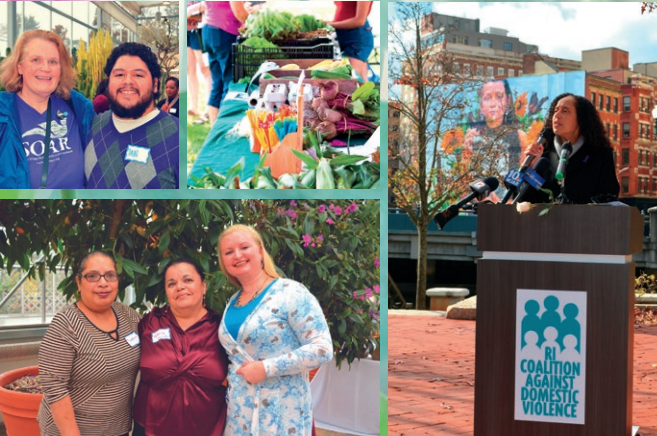Preventing Intimate Partner Violence in Rhode Island

This publication from the Rhode Island Coalition Against Domestic Violence (RICADV) outlines three intimate partner violence (IPV) prevention priorities for the state of Rhode Island:
- Address the root causes of IPV, which are systems of oppression and inequity, by centering those most impacted
- Create safe, supportive environments and change harmful social norms
- Work together to coordinate and sustain primary prevention on the state level to prevent IPV and related forms of violence before they start
The publication aligns with a public health approach to prevention. This approach focuses on improving the health and well-being of all Rhode Islanders, decreasing the factors that make it more likely someone will choose to abuse or someone will become a victim of abuse, and increasing the factors that protect against violence.
This resource is intended to help people, groups, organizations, and systems see how their goals, work, or interests connect to IPV prevention, perhaps in surprising or unexpected ways. It will guide Rhode Island’s prevention priorities into the future, and RICADV will make additions and changes as needed to be responsive to the community. This document includes lessons learned and success stories about programming that can be applied in other states and communities.
This document is intended for the following key audiences:
- Community organizations, including advocacy, social services, public health, public policy, and youth-serving organizations
- Schools, educators, and school administrators
- State agencies
- Elected officials and policymakers
- The RICADV's network of member agencies and members of SOAR, Ten Men, and our Board of Directors
- Funders and grant-makers
- Survivors of IPV and related forms of violence
- Community members
This publication is available at ricadv.org. To learn more about how RICADV is taking action for health equity, see A Commitment to Health Equity Internally and Externally: Rhode Island Coalition Against Domestic Violence.

